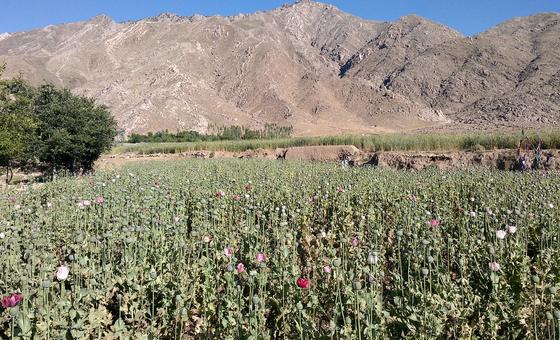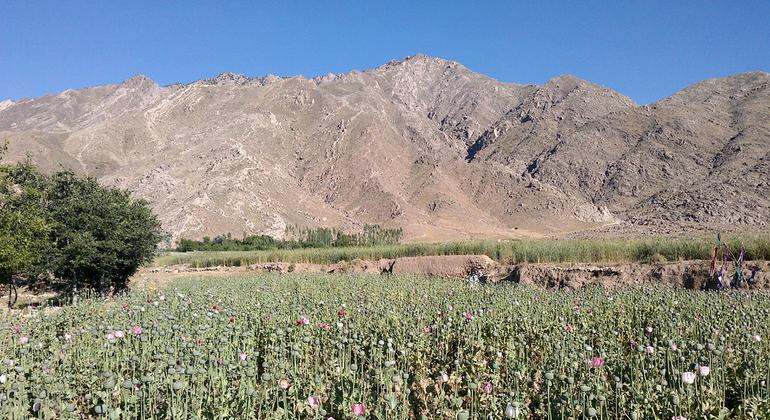
According to the Afghanistan Opium Survey 2023, released by the agency on Sunday, the supply of opium declined by an estimated 95 per cent, falling from 6,200 tons in 2022 to 333 tons in 2023, corresponding to a fall in the area under cultivation, from 233,000 hectares to just 10,800 hectares over the same period.
The near-total contraction of the opiate economy is expected to have far-reaching consequences, UNODC said, highlighting the urgent need for alternative development support for rural communities to build an opium-free future for the Afghan people.
“This presents a real opportunity to build towards long-term results against the illicit opium market and the damage it causes both locally and globally,” said Ghada Waly, UNODC Executive Director.
“At the same time, there are important consequences and risks that need to be addressed for an outcome that is ultimately positive and sustainable, especially for the people of Afghanistan,” she added.
Humanitarian consequences
The survey noted the sharp reduction has had immediate humanitarian consequences for many vulnerable rural communities who relied on income from cultivating opium.
Farmers’ income from selling the opium harvested in 2023 to traders fell by more than 92 per cent from an estimated $1,360 million for the 2022 harvest to $110 million in 2023, the survey added.
“Today, Afghanistan’s people need urgent humanitarian assistance to meet their most immediate needs, to absorb the shock of lost income and to save lives,” Ms. Waly said, noting that over the coming months, the country will require strong investment in sustainable livelihoods, to provide farmers with opportunities away from opium.
Treatment options limited
UNODC also emphasized that though there are high levels of opiate use within Afghanistan, evidence-based treatment options remain limited.
It called for evidence-based treatment to be integrated in public health measures and assistance, including to prevent people with opiate use disorders turning to potentially even more harmful substances.
Beyond Afghanistan
Beyond Afghanistan, less heroin may lead to reduced trafficking and use, or it could spur the emergence of harmful alternatives, such as fentanyl and other synthetic opioids, UNODC warned.
Data on seizures indicate that traders are selling off their opium inventories from past record harvests to weather the shortfall in 2023, while heroin processing has decreased.
However, trafficking in other drugs, namely methamphetamine, has surged in the region.



